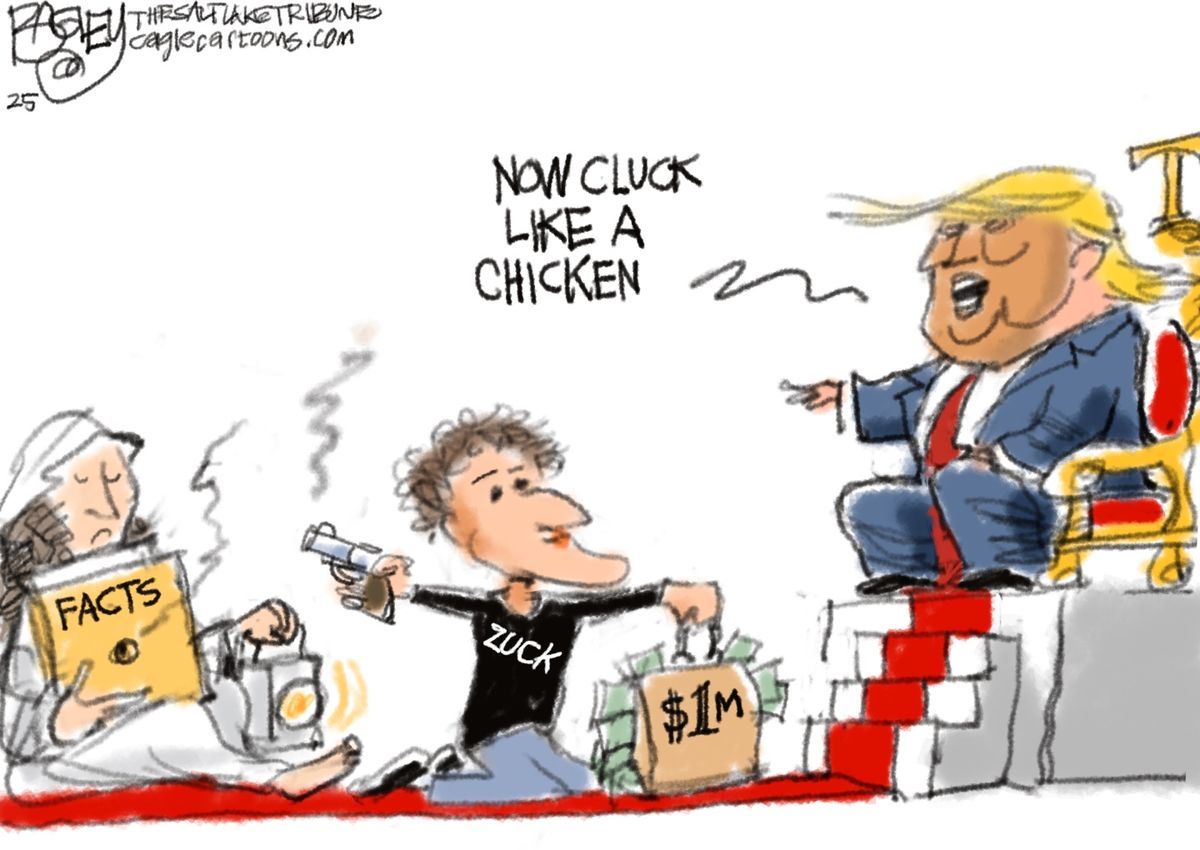The Truth Behind the Cartoons: Meta’s Controversial Fact-Checker Dismissal
In an era where information spreads faster than wildfire, the integrity of online content is paramount. The recent firing of Meta’s fact-checkers has ignited a firestorm of debate, with many turning to the world of cartoons to express their views. These satirical illustrations not only entertain but also illuminate public sentiment regarding Meta’s decision and the broader implications for information integrity in the digital landscape. This article explores the layers behind the cartoons that emerged in response to this controversy, revealing insights into societal attitudes toward fact-checking and online misinformation.
The Backdrop: Meta’s Fact-Checker Dismissal
Meta, the parent company of Facebook and Instagram, recently made headlines when it decided to dismiss its fact-checking team. This decision shocked many, given the rising concerns over misinformation, particularly surrounding critical issues such as elections, health, and climate change. Fact-checkers play a crucial role in assessing the accuracy of content shared on social media platforms, helping to ensure that users receive credible information.
However, the rationale behind the dismissal remains murky. Critics argue that this move signals a troubling shift towards prioritizing user engagement and profit over the integrity of information. Supporters of the dismissal, on the other hand, claim that the fact-checking process can sometimes be biased, leading to censorship of legitimate discourse. This dichotomy has fueled a lively debate across social media platforms, with users expressing their opinions through various means, including the creative outlet of cartoons.
The Role of Cartoons in Social Commentary
Cartoons have long been a powerful medium for social commentary. They can distill complex issues into easily digestible messages, often accompanied by humor or satire. In the case of Meta’s decision, artists have seized the opportunity to critique the company and its approach to information dissemination.
Some popular themes in these cartoons include:
- The Absurdity of Dismissal: Many cartoons depict fact-checkers as quirky characters, emphasizing the absurdity of their dismissal in a world rife with misinformation.
- Information Overload: Some artists illustrate the overwhelming nature of information on social media, portraying users drowning in a sea of falsehoods.
- Skepticism of Corporate Motives: A recurring theme is the skepticism surrounding Meta’s intentions, with cartoons showcasing the company as a puppet master controlling the narrative.
These themes resonate with the public, reflecting a growing concern about the reliability of information online. By using humor and satire, cartoonists effectively communicate the frustrations of users who feel that their access to accurate information is being compromised.
Public Sentiment and the Implications for Online Information Integrity
The cartoons emerging in response to Meta’s controversial fact-checker dismissal reveal a broader public sentiment that cannot be ignored. Many individuals express a profound distrust in large tech companies and their ability to manage the information ecosystem. This distrust is not unfounded; numerous studies have shown that misinformation can lead to severe consequences, including public health crises and electoral interference.
Moreover, the dismissal of fact-checkers raises significant questions about accountability. If platforms like Meta are unwilling to invest in fact-checking, who is responsible for the veracity of the content shared? Users are left to navigate a treacherous landscape of information, where distinguishing between fact and fiction becomes increasingly complicated.
Cartoons as a Reflection of Societal Concerns
In these turbulent times, cartoons serve not only as a form of entertainment but as a mirror reflecting societal concerns. They encapsulate the fears and frustrations of users who are bombarded with misinformation daily. Through satire, artists can critique the status quo, prompting discussions about accountability, transparency, and the role of tech companies in moderating content.
Some of the recurring messages in these cartoons include:
- A Call for Responsibility: Many cartoonists emphasize the need for tech companies to take responsibility for the content on their platforms, advocating for robust fact-checking mechanisms.
- The Power of Community: Some artists highlight the importance of community-driven fact-checking efforts, suggesting that users can band together to combat misinformation.
- The Illusion of Choice: A common theme is the idea that users are given an illusion of choice while the underlying algorithms dictate what information they see.
By engaging with these cartoons, the public can find a sense of solidarity in their frustrations and concerns, fostering a community that values truth and accountability in information sharing.
The Future of Fact-Checking and Online Integrity
As we look to the future, the implications of Meta’s fact-checker dismissal are profound. The reliance on algorithms and user-generated content raises essential questions about the quality of information that can be expected from social media platforms. The cartoons that have emerged serve as a rallying cry for users demanding accountability and transparency.
Moreover, the discussion surrounding fact-checking is likely to evolve. As misinformation continues to plague the digital landscape, there may be a renewed interest in alternative fact-checking models. Community-driven initiatives, independent fact-checking organizations, and even collaborations between tech companies and academic institutions could emerge as potential solutions.
Conclusion: The Power of Art in Advocacy
The truth behind the cartoons lies in their ability to convey complex issues surrounding Meta’s controversial fact-checker dismissal in a relatable and engaging manner. They not only reflect public sentiment but also advocate for a more responsible approach to information dissemination. As the digital landscape continues to evolve, the role of cartoons as a form of social commentary will remain crucial, helping to shine a light on the pressing issues of our time.
Ultimately, the conversation about fact-checking, misinformation, and corporate responsibility must continue. The public’s voice, amplified through art and humor, can drive change and foster a more truthful information ecosystem. As we navigate this intricate web of information, let us not forget the power of creativity in advocating for integrity and accountability in online discourse.
See more Future Tech Daily

